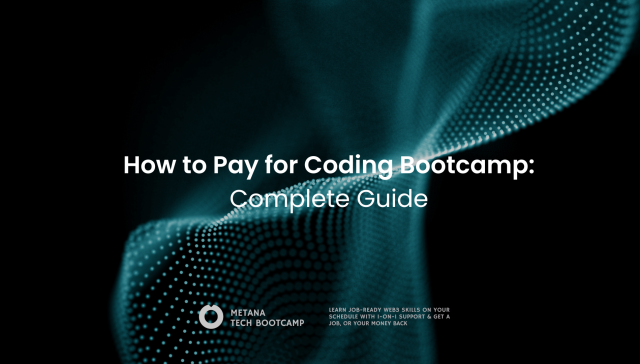In the fast evolving world of decentralized finance and blockchain technology, the need for secure and reliable data feeds is more important than ever. Chainlink, as one of the leading decentralized oracle networks, has gained significant attention for connecting smart contracts with real-world data. However, as the ecosystem grows, so does the demand for more diverse and scalable solutions.
In this article, we will explore the top Chainlink alternatives that offer innovative ways to bridge blockchain networks with external data sources. Understanding these concepts is very important to navigate the blockchain world with a success.
What is Chainlink and Why is it Popular?

Before exploring the alternatives, it’s important to understand what Chainlink is and why has it become so popular.
Chainlink is a decentralized oracle network that allows smart contracts to securely interact with real-world data. For instance, if a smart contract on Ethereum needs access to weather data, stock prices, or any external data source, Chainlink provides a mechanism to fetch and verify that data in a trustless manner.
Its popularity stems from its wide adoption across various blockchain platforms, including Ethereum, Binance Smart Chain (BSC), Polkadot, and many more. Chainlink enables the integrity and security of data by using a decentralized network of nodes to fetch, verify, and deliver data to smart contracts.
Despite its success, Chainlink isn’t without competition. As more decentralized applications and smart contracts are developed, the demand for efficient and cost-effective oracle solutions has led to the emergence of Chainlink alternatives.
Top 6 Chainlink Alternatives
Chainlink has long been the go-to solution for many developers, offering a decentralized and secure network to connect smart contracts to off-chain data. However, as the blockchain ecosystem grows and diversifies, so does the need for alternative oracle solutions that can meet specific requirements such as cost-effectiveness, scalability, and flexibility.
While Chainlink remains a dominant force in the oracle space, there are several compelling Chainlink alternatives that offer unique features and improvements. Whether you’re a developer building decentralized finance applications, a decentralized autonomous organization, or a new blockchain platform, exploring different oracle networks can help you find the best solution for your specific needs.
1. Band Protocol
Band Protocol is a leading alternative to Chainlink, providing decentralized data oracles with cross-chain compatibility. Built on the Cosmos SDK, it enables developers to integrate data feeds into smart contracts with low latency and high efficiency.
Unlike Chainlink, Band Protocol focuses on scalability and interoperability, making it a strong choice for projects requiring support across multiple blockchain ecosystems.
2. API3
API3 is another Chainlink alternative focused on providing decentralized APIs. Unlike traditional oracles, API3 connects smart contracts directly to Web APIs, eliminating the need for intermediary nodes. This approach enhances efficiency and security by reducing potential points of failure and minimizing trust in centralized parties.
Additionally, API3 offers developers greater control through first-party oracles, which enables data accuracy and integrity, making it a more streamlined and reliable solution compared to Chainlink’s multi-node dependency model.
3. Provable
Provable is a reliable alternative to Chainlink, that offers secure and efficient data feeds for blockchain applications. It stands out for its use of secure hardware and traditional APIs to provide highly reliable off-chain data with minimal delays. Provable’s focus on enables data integrity, which makes it an excellent choice for projects that prioritize security and performance in external data sourcing.
Provable is popular in industries like insurance, supply chain, and gaming, where reliable and verifiable data is needed.
4. Tellor
Tellor is a decentralized oracle network designed to provide reliable off-chain data for DeFi protocols and smart contracts. It uses a staking model where data reporters must stake tokens, incentivizing accurate and honest reporting.
Unlike Chainlink, Tellor emphasizes a simpler, more secure mechanism for data validation through dispute resolution and community governance, making it an ideal choice for projects seeking robust and transparent price feeds. Tellor is ideal for decentralized applications that require highly reliable and verifiable data sources, especially when it comes to financial data like prices and rates.
5. DIA
DIA is a decentralized oracle platform designed for DeFi applications, offering transparent and high-quality data feeds. Unlike some other alternatives, DIA sources its data directly from decentralized exchanges and other public sources, enabling accuracy and transparency. This makes DIA a strong choice for projects that demand trustworthy and verifiable data inputs.
6. MakerDAO’s Oracle System
MakerDAO, the platform behind the DAI stablecoin, features a proprietary oracle system designed to support its decentralized lending protocol. This system relies on a network of independent data providers to deliver accurate and reliable price feeds, prioritizing stability and security. MakerDAO’s oracles are tailored to maintain the integrity of its ecosystem, ensuring the stable operation of its DeFi services.
Why Consider Chainlink Alternatives?
While Chainlink remains the most widely used oracle solution, there are several reasons for why you might consider exploring Chainlink alternatives. Following are some of those.
| Cost-Effectiveness | Some alternatives offer lower fees and more efficient data delivery models, making them a more cost-effective choice for certain applications. |
| Scalability | Chainlink’s decentralized network has sometimes faced congestion issues. Alternatives like Band Protocol and API3 offer more scalable solutions with faster data feeds. |
| Customizability | Certain alternatives, like DIA and API3, provide greater flexibility in customizing data feeds to fit specific use cases. |
| Decentralization and Security | Networks like Tellor and Provable use unique mechanisms for data validation, offering enhanced decentralization and integrity compared to Chainlink. |
Factors to Consider When Choosing an Alternative
When selecting a Chainlink alternative for your blockchain project, it’s important to consider various factors that can significantly impact the performance, security, and overall success of your decentralized application.
Each oracle network offers distinct features, and the right choice depends on your specific use case, whether you’re building a DeFi protocol, gaming platform, or enterprise solution. Understanding the key elements that differentiate these oracle networks can help you choose the best solution to meet your project’s needs.
- Data Availability
- Make sure that the oracle network can provide the data you need for your application, whether it’s financial data, IoT data, or other external data sources.
- Cost
- Understand the pricing model for each oracle service, as some networks may charge lower fees or offer more efficient solutions.
- Scalability
- Choose an oracle network that can handle the volume of data your decentralized app requires, especially if you’re building a high-traffic application.
- Security and Trust
- Look for oracle networks with robust security models, such as staking mechanisms, cryptographic proof, or decentralized governance.
- Integration with Ecosystem
- Make sure that the oracle service supports the blockchain platforms and technologies you are using.
Comparing Chainlink and Its Alternatives
To help you choose the best oracle solution for your project, here’s a quick comparison of Chainlink and its top alternatives based on cost, decentralization, scalability, and blockchain compatibility:
| Oracle Network | Cost-Effectiveness | Decentralization | Scalability | Blockchain Compatibility | Unique Features |
|---|---|---|---|---|---|
| Chainlink | Higher fees due to extensive network validation | Highly decentralized, multi-node aggregation | Moderate; congestion possible | Ethereum, BSC, Polkadot, Solana, and more | Widely adopted, strong security, large ecosystem |
| Band Protocol | Lower fees than Chainlink | Decentralized, built on Cosmos SDK | High scalability, efficient data feeds | Multi-chain support (Ethereum, BSC, Cosmos, Solana) | Faster data processing, interoperability with Cosmos |
| API3 | More cost-effective than Chainlink | First-party oracles reduce dependency on intermediaries | High; direct API connections | Ethereum, BSC, Polkadot, and more | First-party oracles ensure high data accuracy |
| Provable | Affordable, efficient data feeds | Less decentralized, but uses secure hardware | High; focuses on off-chain computation | Ethereum, Hyperledger, EOS, and more | Uses secure hardware for data integrity |
| Tellor | Lower-cost oracle solution | Highly decentralized, uses staking model | Moderate; relies on community governance | Ethereum and other EVM-compatible chains | Dispute resolution for secure, verifiable data |
| DIA | Cost varies depending on data sources | Transparent, community-driven oracles | Moderate; prioritizes accuracy over speed | Ethereum, Polkadot, Avalanche, Binance Smart Chain | Sources data directly from decentralized exchanges |
| MakerDAO Oracles | Designed for MakerDAO ecosystem | Decentralized data providers ensure reliability | Moderate, focused on MakerDAO’s needs | Primarily Ethereum | Optimized for DeFi price feeds and DAI stability |
Conclusion
Chainlink is the most popular oracle network, but alternatives offer unique benefits:
- Need lower costs? Try Band Protocol or Tellor.
- Looking for speed and scalability? API3 and Band Protocol excel.
- Prioritizing security? Provable uses secure hardware for data integrity.
- Building a DeFi app? DIA and MakerDAO’s oracles provide accurate price feeds.
Choosing the right oracle depends on your needs. Explore these options and integrate the best fit for your project!
FAQs
Can I use Chainlink alternatives with Ethereum?
- Yes, most Chainlink alternatives, such as Band Protocol, API3, and Tellor, are designed to be cross-chain compatible and can be integrated with Ethereum. Many of these alternatives offer oracles that support not just Ethereum but other blockchains like Binance Smart Chain, Polkadot, and Solana.
How do Chainlink alternatives compare in terms of trust and adoption?
- While Chainlink is currently the most trusted oracle solution, many Chainlink alternatives are gaining recognition for their security, scalability, and innovation. As the blockchain ecosystem matures, these alternatives are building trust through decentralized governance models, competitive features, and community-driven development.
What are the benefits of using a decentralized oracle over a centralized one?
- Decentralized oracles provide a higher level of security and trustlessness, eliminating the risks associated with relying on a single centralized data provider. They make sure that no single entity can control or manipulate the data, which is especially important in decentralized finance and other trustless applications.
What is the cost difference between Chainlink and its alternatives?
- Costs can vary significantly between oracle networks. Chainlink, while widely adopted, has been criticized for higher fees in certain use cases. Some Chainlink alternatives like Band Protocol and Tellor offer lower transaction costs or more efficient data delivery models, making them attractive for projects focused on minimizing operational expenses.
Which Chainlink alternative is best for DeFi?
- For DeFi applications, Band Protocol, Tellor, and DIA are some of the top Chainlink alternatives due to their focus on providing accurate, real-time financial data, such as price feeds and exchange rates. Each offers unique advantages in terms of decentralization, speed, and security, making them well-suited for DeFi projects.







